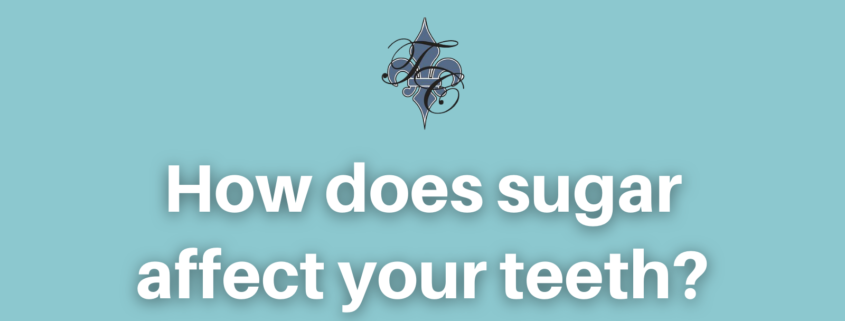How does sugar affect your teeth?
Consuming too much sugar can harm more than your blood glucose and your waistline; it can harm your teeth. Sugar consumption feeds the millions of harmful oral bacteria dwelling inside your mouth. By nourishing these destructive bacteria, you increase your risks for tooth enamel erosion and dental caries. Our gentle dentist, Dr. Chauvin prevents and treats tooth decay in Lafayette, Louisiana. If it’s time to reserve a dental checkup, call Tim Chauvin, DDS & Associates to speak with a helpful member of our team.
What happens to my teeth when I eat sugar?
Eating sugary and starchy food creates a chain reaction in your mouth that harms your teeth. First, once sugar molecules enter the oral cavity, the bacteria that form plaque will begin to feed. As they eat these sugar molecules, they colonize and release acids as a by-product. Acids work in tandem with bacteria to cause permanent damage to teeth. This process will soften tooth enamel and ultimately lead to enamel loss as acids strip away its minerals.
Your tooth enamel is precious. In fact, it’s the only thing standing between the softer structures within your teeth and cavity-causing bacteria. When tooth enamel is permanently damaged, you will have substantially increased risks for developing cavities.
Are there “safer” forms of sugar?
Sugar by any other name is still a food source to harmful oral bacteria. Some folks mistakenly believe that blue agave nectar or honey are safer than conventional cane sugar. Unfortunately, the bacteria in your mouth don’t discriminate, so anything that the body breaks down as a sugar compound will serve as a food source.
When you’re checking ingredient labels on food items, you need to look for more than just the word “sugar”. Following are common names of sugar sources in popular food items:
- Maltose
- Dextrose
- Fructose
- Corn syrup including high fructose varieties
- Fruit juice concentrate
What foods and drinks should I avoid the most?
Some of the most destructive items you can consume are products that contain both sugar and acid. Common examples include soda, citrus, wine, cocktails, and fruit. While some of these items can have health benefits such as vitamin C or anti-oxidants, combining sugar with acidic compounds could spell trouble for your pearly whites.
One culprit behind tooth decay and enamel loss that people are surprised to learn about are smoothies—even the green varieties. Although smoothies have tons of nutrient-dense ingredients, they are often sweetened with fruit juices like pineapple or orange juice that also happen to be acidic. Since smoothies are blended, particles from these health drinks can settle in between teeth for hours at a time.
If you decide to consume foods and beverages that are dangerous to your teeth, be sure to drink plain water afterwards. Water assists saliva with diluting harmful acids and with rinsing your teeth. You can also brush your teeth about 30 minutes after consuming something with sugar and/or acid for more protection.
How are cavities treated?
Since teeth cannot self-heal, cavities require professional treatment from a dentist. Early-stage tooth decay is typically treated with small restorations called “fillings”. Normally, a filling consists of applying a tooth-colored compound in liquid form over the treatment area. Then, the filling compound is hardened with a curing light. Since fillings are made from tooth-colored materials, patients can enjoy undetectable dental work.
More significant tooth decay may be treated with restorations such as onlays, inlays, and dental crowns. After you’ve been diagnosed with a cavity, our dentist can help you determine the best treatment method to suit your unique needs.
If you’re struggling with tooth pain or if it’s been a while since your last checkup, call Tim Chauvin, DDS & Associates at (337) 234-2186 to reserve an appointment.



